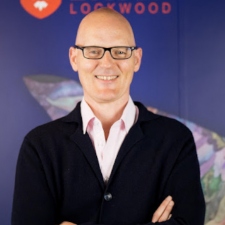Lockwood Publishing’s mobile sim Avakin Life was released in 2013 and has since amassed half a million daily active users and 250 million registered player accounts. While the title features some game elements, its core focus is centred mainly around the social aspect of the platform and boasts a prominent presence for the metaverse on mobile.
We spoke with Lockwood’s CEO and founder Halli Bjornsson about the initial creation of Lockwood and how the team put all of their efforts into the creation of Avakin Life. We also touch on the state of Web3 within the mobile space and what needs to happen to see the wider adoption of a mobile metaverse.
Pocketgamer.biz: Tell us about your history in the games industry.
Halli Bjornsson: My first role in the industry was as an artist at Bizarre Creations, which was a Liverpool-based British video game development studio, and I worked on Formula One ‘95 and ‘97 for PlayStation One and Metropolis Street Racer for the Dreamcast. I then went on to work for Electronic Arts and then Climax Online.
I’ve been very fortunate to work at companies producing excellent AAA titles published by Sony, EA and Sega, including the influential PlayStation Home. Alongside that, I also became a director at TIGA in 2013, which is the non-profit trade association representing the UK's games industry, and I’m very proud to have been a part of that for the last decade.
What led to the creation of Lockwood?
Our big opportunity came when we got a gig helping Sony build experiences on PlayStation Home. We completed around 60 projects for Sony on the platform.Halli Bjornsson
Console was heading towards an eternal crunch in the UK, and there were changes on the horizon with social taking off with MySpace and Facebook, so we set up the company as a vehicle to explore those changes. I founded the company alongside Joel Kemp and Justin Johnson, initially as Outso, a full-service outsourcing videogame company, which then became Lockwood Publishing when we pivoted from work-for-hire to self-publishing on PS Home. We called it Outso initially as we saw an opportunity to provide managed outsourcing solutions for game companies, and that really helped us get off the ground.
Our big opportunity came when we got a gig helping Sony build experiences on PlayStation Home. We completed around 60 projects for Sony on the platform, and many of them with some of their highest profile partner projects, such as Assasin’s Creed, Uncharted, and Red Bull Air Race, just to name a few.
As we got to know Home well, I thought it would make an excellent self-publishing platform. There was a significant need at the time for an environment where small teams could start off, and this was a great potential model for that. Now, we obviously see something similar with Roblox. We got our team to produce a couple of demos that played to the strengths of the platform and took one of them to Sony called Sodium One and asked if we could publish it as a game. That led to a pivot for Home, where it went from more of a marketing platform to a self-publishing one and Lockwood Publishing was born.
We put all of our energy and last bit of cash into pivoting to mobile and created our own little MVP world called Avakin Life.Halli Bjornsson
Lockwood Publishing is responsible for Avakin Life, which has been on mobile for some time. What can you tell us about the evolution it has undergone?
During our time on Home, we could see the rise of mobile as a credible 3D social gaming platform. We thought that the virtual world model would be likely to work even better there as mobile was emerging as the killer social device. Unity also appeared with a business model that suited free-to-play. Also, to help us with our decision-making, Sony decided to close down PS Home. We put all of our energy and last bit of cash into pivoting to mobile and created our own little MVP world called Avakin Life. That was back in December 2013. Now, ten years later, it has more than 250 million player accounts across mostly Android and iOS, with half a million daily actives.
As with all long-running games, Avakin Life has changed hugely in the time since it was first launched, growing in size and possibility alongside the increase in players. With every update, we try to add new ways for the players to socialise and have fun while obviously ensuring that the platform runs well.
Avakin Life has a heavy focus on the social aspect. How do you plan to continue to expand upon that?
Avakin is really much more of a social platform than a game. We have some light games within Avakin, but it’s really the social aspect that takes centre stage, as you mentioned. Going forward, we want to build on that by giving our community more opportunities to express themselves and take the stage.
We are also working more with brands and IP holders to make our world richer, and that’s something we’re seeing more and more of since our engagement times are on par or better than some of the big social platforms.
What role do you see Web3 and the metaverse having on the gaming industry and mobile in the future?
Web3, as a philosophy, expresses many of the key innovations that are bound to take place on mobile and social in general. It’s really about the mechanisms that enable the true creator economy and allow for space for innovation around business models and fluidity of trade and social exchange. Think Free Market Economy for the digital economy. Bear in mind that there has been no major innovation in mobile business models since F2P was introduced on mobile. Many have forgotten that there was no F2P to start with on mobile, and F2P enabled a more granular exchange within games. Web3 is just an extension of that evolution, whether you call it Web3 or just an improvement on where we are at. It’s long overdue.
The ideas around free exchange and ownership of items and your self-expression, in general, are obviously going to be very important to us and our community as a social platform.
It’s really the mobile platforms that have to create space for innovation in this area.Halli Bjornsson
What do you think needs to happen to see the greater adoption of Web3 titles?
It’s really the mobile platforms that have to create space for innovation in this area. F2P only happened on mobile because Apple and Google said it was ok and facilitated on their platforms. The biggest obstacle is that for Web3 to happen, we must ultimately share our revenues with creators. That’s not possible really, just unilaterally by developers after the 30% cut and many of the platforms at the forefront there run at losses as a result. I think the platforms will ultimately benefit as much in the long run from the creator rev-share model in the same way they benefited from the F2P model. It helped that Facebook had shown the benefits of F2P as a commercial model on PC browsers, and the creator platforms that have come from PC have shown the same for the creator piece.
It’s possible that the regulations around the Digital Markets Act will open this up and that someone will come up with the next evolution of the digital marketplace and that the big platforms will follow.
And what about Lockwood? Is there anything we should be on the lookout for? What do you currently have going on?
We’re very much focused on building a path towards the creator economy for our community. We ultimately want to empower them to create their own worlds and communities and benefit from it as much as possible.
Discover more about the latest trends and updates for Web3 and the metaverse at Pocket Gamer Connects. In this video from Pocket Gamer Connects Toronto in 2022, our panel discusses what the metaverse is, where its going and how will the reality of that journey be different from all the hype?






















